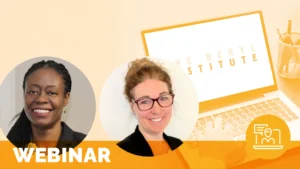Managing Patient Perceptions with Heart: 7 Essential Tips for Mastering Proper Phone Etiquette

By Chris Taylor
In the realm of customer service, a call center serves as the front line. It’s where customers’ concerns are heard, problems are solved, and impressions are formed. In this digital age, where interactions are often faceless, mastering proper phone etiquette is paramount. It can make the difference between a satisfied caller and one who decides to go elsewhere. In this blog post, I will explore seven essential tips for maintaining proper phone etiquette.
1. Greet with a Smile
Your voice is your most powerful tool on a phone call. When answering a call, remember to greet the caller with a warm and genuine smile, even though they can’t see it. Smiling while speaking can be heard in your tone, creating a positive and welcoming atmosphere. It sets the tone for a pleasant conversation and helps build rapport with the caller.
2. Identify Yourself Clearly
Before delving into the caller’s issue, it’s essential to introduce yourself clearly. State your name and the name of the company or department you represent. Clarity in identification reassures the caller that they are calling the right place and talking to the right department. It also adds a professional touch to the conversation.
3. Active Listening
One of the pillars of effective communication is active listening. Pay close attention to what the caller is saying and avoid interrupting them. Let them express their concerns fully before responding. Reflecting their concerns shows that you value their perspective and are dedicated to solving their problem.
4. Empathize and Show Understanding
Callers often reach out when they encounter difficulties or frustrations. In such situations, empathizing with their feelings is crucial. Use phrases like “I understand how frustrating that can be” or “I’m sorry to hear that you’re experiencing this issue.” Demonstrating empathy can help diffuse tension and make the caller feel heard and valued.
5. Stay Calm and Professional
In the fast-paced environment, it’s easy to become overwhelmed. However, maintaining composure and professionalism is vital. Regardless of the caller’s tone or attitude, respond calmly and courteously. If a caller becomes agitated or irate, resist the urge to escalate the situation. Instead, use your training to de-escalate and find a solution.
6. Offer Solutions, Not Just Information
Callers make contact because they seek solutions to their problems. While providing information is essential, it’s equally important to offer solutions. Be knowledgeable about your company’s services and problem-solving procedures. If you’re unable to resolve the issue immediately, inform the caller about the steps you’ll take to address it and follow up as promised.
7. Use Positive Language
The words you choose can significantly impact a conversation. Instead of saying, “I can’t do that,” try, “Let me check to see what I can do for you.” Using positive language conveys a willingness to assist and can turn a potentially negative interaction into a positive one. Avoid using jargon or technical terms that the caller might not understand, and if you must use them, explain them clearly.
Conclusion
Proper phone etiquette is not just about answering calls; it’s about creating a positive caller experience. When callers have pleasant interactions with agents, they are more likely to remain loyal to the company and even become advocates. Remember, every call is an opportunity to leave a lasting impression, so use these seven essential tips to ensure that your call is a beacon of exceptional customer service. Mastering proper phone etiquette is not only a professional skill but also a reflection of your company’s commitment to customer satisfaction. Like the famous Maya Angelou said, “I’ve learned that people will forget what you said, people will forget what you did, but people will never forget how you made them feel.”
Biography:
Chris Taylor is a Customer Communication Specialist at the Richmond VA Medical Center in Richmond, Virginia. He is an 11-year United States Marine Corps Veteran.
Related content
-
 Staff & Provider Engagement
Staff & Provider EngagementA New Take on Patient Advocacy Rounding: An Advocate-to-Caregiver Approach Improving both the Caregiver and Patient Experience
By Kelly Gibbons MSN, RN Rounding is a well-established practice in healthcare, known for significantly improving patient experience scores, reducing safety incidents, and enhancing caregiver satisfaction. But how can patient advocacy teams integrate into the rounding process to benefit not only the patient experience but the caregiver experience at the same time? Many patient advocacy
Learn more -
 Environment & Hospitality | Quality & Clinical Excellence | Staff & Provider Engagement
Environment & Hospitality | Quality & Clinical Excellence | Staff & Provider EngagementPX Chat: Structuring Your PX Efforts
1pm ET / 12pm CT / 11am MT / 10am PT – How are experience efforts structured within your organization? What works well and what lessons have you learned throughout your experience journeys? Join The Beryl Institute community for an opportunity to connect with your peers and discuss big questions in healthcare centered around the
Learn more -
 Culture & Leadership | Staff & Provider Engagement
Culture & Leadership | Staff & Provider EngagementUsing Gratitude to Elevate the Human Experience
In this webinar, the presenters will share how they developed a Gratitude Report as a part of Southcoast Health’s grateful patient program using positive patient feedback, comments, and stories to recognize caregivers that embody the values and service behaviors. The Gratitude Report is a list of employees’ names that have been mentioned by patients and
Learn more
